Philosophical fraternity of Rabindranath Tagore and Anwar Ibrahim
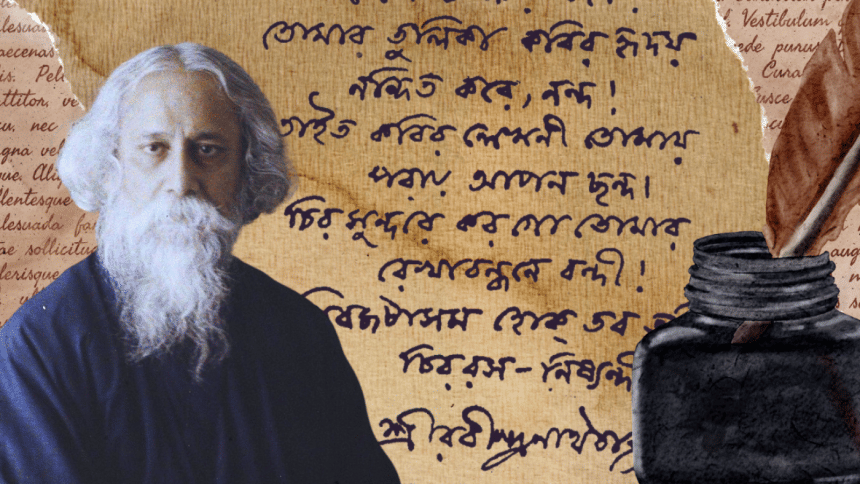
Rabindranath Tagore enjoys extensive popularity in many Asian countries outside his native Bengal and India, and his rich legacy as a poet and proponent of global dialogue and confluence of cultures is celebrated in those countries. This includes Malaysia, Singapore, and China. Rabindranath visited these countries to experience their cultures first-hand and understand their potential to engage in a constructive network of global symphony. An extensive globetrotter, he visited over 30 countries worldwide, some of them multiple times, literally spending 10 years of his life on the road as a 'chiropathik' or wayfarer, with this grand vision for humanity, and went there with his soul infused with the filaments of compassion, creativity and unity to build the bridges he needed to connect the spheres.
Rabindranath visited Malaysia and Singapore (British Malaya) in July-August 1927. During this visit, he spent five days in Singapore and 21 days in Malaysia. He described his visit as a "pilgrimage" as he wanted to see the interaction of cultures in these societies–Malay, Chinese, Indian, and local tribal traditions–and to comprehend this unity in diversity better, he not only mingled with them freely but also stayed with Muslim, Chinese and Indian families. Moreover, he gave lectures and addresses touching on his core mission of creating a manab mahajati or global community of humanity that transcends national and cultural boundaries.
According to the Nalanda-Sriwijaya Centre at the Institute of Southeast Asian Studies, Singapore, he spoke on topics such as "International Friendship and the Unity of Mankind" (July 22), "Cultural Fellowship between Chinese and Indians" (July 24), "Unity of the Human Race" (August 4) and "Uniting the Cultures of India and China in Service of the Whole World" (August 5). In one of the events, Rabindranath was introduced by C.H. Woolfe, the Acting Colonial Secretary, as "one of the world's greatest men." In Malacca, a Muslim admirer proclaimed, "Tagore was not only a poet of the highest calibre but by the grace of Khudatallah had also attained tassawuf or enlightenment of a Sufi mystic." The poet-emperor was greeted enthusiastically by all the local communities.
This visit, almost a century ago, and his vision of hope for Asia and the world have endeared him to many Malaysians but to none more than the Honourable Dato' Seri Anwar bin Ibrahim, the country's Prime Minister. In a commemorative message to Rabindranath's centenary celebration in 1961, Malaysia's first Prime Minister, Tunku Abdul Rahman, described Rabindranath as a poet who "belongs to Asia and the world" and whose spiritually couched humanitarian philosophy continues to act as "an enriching source of inspiration to mankind." However, Anwar's admiration for the Bengal bard goes far beyond. In his seminal book, The Asian Renaissance (1996), Anwar proffers Rabindranath, Filipino writer and polymath Jose Rizal and Pakistani poet Muhammad Iqbal as "progenitors and early protagonists of the Asian Renaissance." He believes that these three creative thinkers and cultural icons have led a rejuvenation of the Asian self, deformed and fractured by the depraved, marauding colonial rule, with a humanistic tradition and an Asian model of universalism laced with noble sensibility, moral well-being, imagination, compassion, equity and spirituality that challenges and excels the greed oriented globalisation disguising imperialism that has come from the West.
Anwar's intellectual breadth is truly remarkable, making him one of the most learned leaders in the modern world. In Makers of Contemporary Islam (2001), John Esposito and John Voll regard Anwar as one of the nine most internationally visible and influential intellectual activists in the Muslim world who have catalysed an Islamic revival through their "effective synthesis of modernisation and Islamic tradition."
However, Anwar is also well versed in Shakespeare and the Western tradition. He has drunk aplenty from the Chinese, Malay and Indian intellectual wells, too. He acquired much of this erudition during his decade-long prison for politically motivated charges. As he once said in his characteristic humour, he filled his loneliness in jail by "singing songs and reading." He talked about his "singing repertoire" in his Time Magazine interview on September 19, 2024 and showcased his singing talent by performing a classic Hindi song during his recent visit to India. As for his reading habit in prison, he maintained during his visit to Australia in March 2024 that the works of William Shakespeare helped him behind bars: "I read and reread Shakespeare [in prison] … [and] saw it differently. I saw not only the brilliance but the moral fortitude. Be it Othello, with the racism, or King Lear, with Cordelia towards the end."
Anwar's prison experience has also given him the fortitude to fight for the minorities and marginalised communities at home and abroad. Much like Rabindranath, it has made him inclusive and pluralistic in imagination, an essential component of his vision of the Asian Renaissance. Throughout his life, Rabindranath fought for the rights of Muslims, women and the Untouchables. He wanted India to forge "a great synthesis" of its diverse socio-cultural-religious forces through the cultivation of a spirit of tolerance, mutuality, unity and empathy – that which helps to "bridge over the differences of colours and scriptures and … recognise all that is highest and best as the common heritage of humanity."
Similarly, Anwar has fought for the economically and racially deprived in Malaysia in the spirit of "Malaysia Madani," or a Civil Malaysia that is more humanistic and inclusive. He believes that a new world order rooted in multiculturalism and pluralism is possible only if a nation like Malaysia, which he considers "Asia in microcosm," can rebuff racial and religious extremism and espouse moderation. Thus, in his 2023 budget speech, Anwar warned, "The harmony and unity of our nation must always be preserved, regardless of religion or race...This country will not allow [the] hateful sentiment [of bigotry] to grow." He also allocated funds in the budget for projects to cultivate diversity and bridge divides.
In his essay "Race Conflict," Rabindranath asserts that the problem of race conflict has been "the highest problem of human history." Nonetheless, he focused more on religious unity in his work because of the ongoing religious conflict between Hindus and Muslims that eventually split the subcontinent. Rabindranath believed India, Asia and the world could never unite without religious harmony. Therefore, to dispel religious hostility and to induce interreligious harmony, he established an Islamic Studies Department (1927), a Chair of Persian Studies (1932), a Chinese Studies Department (1937) and a research centre for the study of the all the major religions at his university, Visva-Bharati. Likewise, Anwar emphasises religious cooperation and harmony as pivotal to his universalist vision. Therefore, he rejects religious extremism by quoting a hadith in his 2023 budget speech, "Those who go to extremes are doomed." He also underscores the shared heritage of all the religions in his book, The Asian Renaissance and his interviews and speeches. For example, in the "Sapru House Lecture" in India, 2024, he proclaims: "Hindus, Muslims, Sikhs, Jains, Jews, Christians, Buddhists–we share histories and origins. We share sources of knowledge and in that common treasury of memories, we vindicate our shared values of truth, of ethics, of humanity and of our innate desire for peace."
Rabindranath was fiercely critical of Western materialism, its "cold-blooded utilitarianism," self-seeking nationalism and "barbaric greed." Yet he believed that East-West harmony was crucial, as without it, the world would remain insular and fractured: "to say that it is wrong to cooperate with the West is to encourage the worst form of provincialism and can produce nothing but the worst form of indigence." However, Rabindranath wanted this cooperation "in fullness of truth." Anwar, too, is critical of Western hegemony, hypocrisy and arrogance but advocates East-West symbiosis, not through Europhilia or senseless submission to the West, but in equal partnership and without sacrificing the core values of justice, virtue and compassion, which he deems both Asian and universal. He believes in global dialogue and consortium of cultures because, without them, there cannot be "global convivencia." He maintains that Asia must learn from "Western civilisation, inasmuch as the West has to learn from the East," but that encounter ought to be "between equals… that will serve to challenge our pride and end our prejudices."
In a lecture in China in 1924, Rabindranath proclaimed, "I hope that some dreamer will spring from among you and preach a message of love and therewith, overcoming all differences, bridge the chasm of passions which has been widening for ages." Anwar has emerged as that messenger for our time. Both hold that while human beings should continue to love members of their community, race, religion and nation, their love should not be circumscribed by any arbitrary "circle," or thorny hedges of exclusion or division but extend to the rest of humankind. If a nation is an imaginary circle, they argue, it is incumbent upon us to readjust our imagination so that the fellowship of the species does not stop at a geographical border like commodities. By adopting this inclusive vision, it is possible to create a commonwealth of nations where every nation has its identity and yet remains an integral part of the larger global community through the invisible bond of fellowship and fraternity.
Mohammad A. Quayum has published 15 books on Malaysian-Singaporean Anglophone literature and six books on Rabindranath Tagore, including The Postcolonial Millennium: New Directions in Malaysian Literature in English (with Grace Chin; Routledge, 2024) and Rabindranath Tagore's Journey as an Educator (Routledge, 2023).

 For all latest news, follow The Daily Star's Google News channel.
For all latest news, follow The Daily Star's Google News channel. 
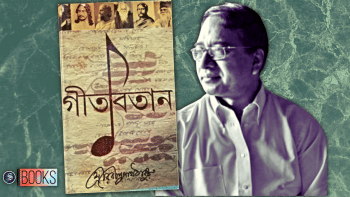



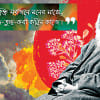



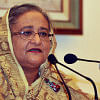

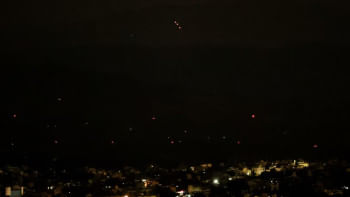
Comments